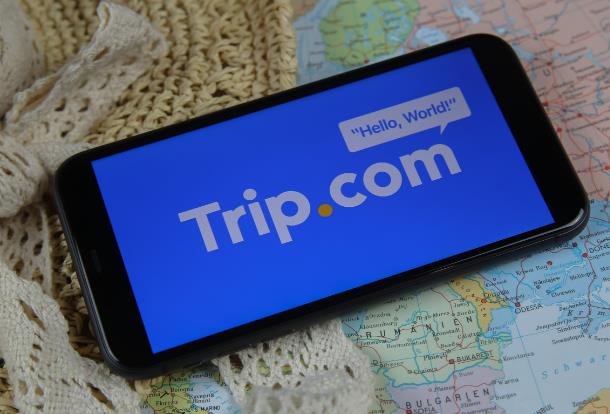Ctrip.com, a nine-year-old online travel agency based in Shanghai, and traded on the Nasdaq, introduced an English-language Web site this year that offers the company’s leisure and business travel services within China. Last month, it began selling packages for the Beijing Summer Olympics with air transportation from the United States.
On a recent trip to New York, Jane Jie Sun, Ctrip’s chief financial officer, discussed the potential impact of the Olympics on Ctrip, its competition and plans to expand both its domestic and overseas business. Here are excerpts from the conversation:
Q. How big is the travel market in China?
A. According to China Travel Bureau statistics, in 2007 it was $150 billion, spent by Chinese on travel domestically and on inbound travel by foreigners. The World Tourism Organization forecast says China will become the largest inbound and outbound tourist country by 2020.
Q. Why are you going after the English-speaking market, and what services are you offering it?
A. Currently 90 percent of our revenue is from domestic travelers, Chinese people traveling within China, for leisure and business. And 10 percent is from Chinese people traveling to other countries. There is one new market we are trying to target, the inbound business, to attract people in the United States, Europe, Japan, Korea and other countries to come to China.
The first step we are taking is to launch our English Web site. If you need a hotel, we have more than 6,400 hotels in China to offer. If you need to fly to any cities, Ctrip has 100 percent coverage on all the routes. If you’re on a business trip and want to do a side tour on the weekend, we can take you out. We’ve just launched rental cars with a driver.
Q. Are you selling air travel from the United States to China?
A. We’re making deals with major airlines, particularly those that offer direct flights from New York, San Francisco and Los Angeles to China. Hopefully, we’ll be selling flights in a few months.
Q. What percentage of the online and offline travel markets in China do you control?
A. We have more than 50 percent of online travel, but online travel is a very small portion of overall travel — it only represents 1 to 2 percent of overall travel. As people move more online, the ability for us to dominate online travel will be increasing, so we will grab more and more market share. For offline, call-center-based travel, we have only 2 to 3 percent of the market, but we are the largest travel agency providing nationwide coverage in China.
Q. What is your main competition?
A. In China there is a duopoly in online travel agencies. Ctrip is No. 1. The second one, Elong, is much smaller. Now we book more than three times the room nights of Elong, more than eight times Elong’s volume in air. Package tours, they used to compete with us. After a couple of years, they dropped them. Corporate travel is new for us, they’re not doing anything.
Of course, the traditional mom and pop stores also compete with us, but we’re very effective getting market share from these small shops. It’s not necessary for us to buy them. Based on our execution, we can pretty much take them out.
Q. How does your company make money?
A. We don’t charge service fees. It’s totally commissions.
Q. Expedia controls Elong. Do you see other online travel companies from the United States, like Travelocity, Orbitz or Priceline, entering the China market and competing with you?
A. We talk to all the international travel agencies. What we can do potentially is to work with Priceline, Travelocity, Orbitz or even Expedia, where if they want to send customers to China, we would be the back-end operation, and we can do revenue-sharing with them. And if our customer needs to go to a foreign country, these sites can provide the services and products they need.
Q. What will the Beijing Olympics mean for Ctrip?
A. It’s very hard to predict. On the revenue side, we don’t know how many people will travel in the domestic market. Some Chinese people might say, “This is a once-in-a-lifetime opportunity, I’m taking my whole family to Beijing,” but some people might say, “It’s so expensive, let’s stay home, we’ll watch TV.” The Olympics is only a good kick-start for our inbound business.
Q. What are your company’s main challenges now?
A. The main thing is to continuously explore new business lines. How can we test the water and get into the cruise industry, which we don’t have in China? The rental car business? China’s not ready for it, the traffic is very bad. All these things will take lots of wisdom, in terms of how much we want to invest, what is the right time to invest.
In China, we’re very strong in the first-tier cities. How can we fully penetrate into other areas? And after China, what are we going to do? We have Hong Kong, Macao and Taiwan, Southeast Asia, India — these all represent very good opportunities. As Chinese citizens become more affluent, we need to best utilize all our customer resources and send them to the area that they want us to take them to.




